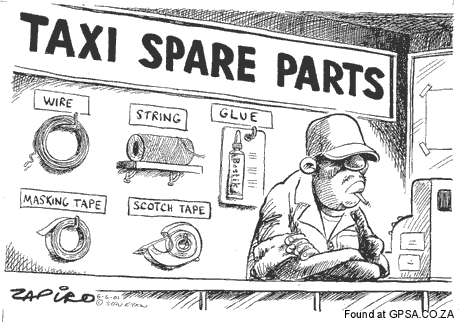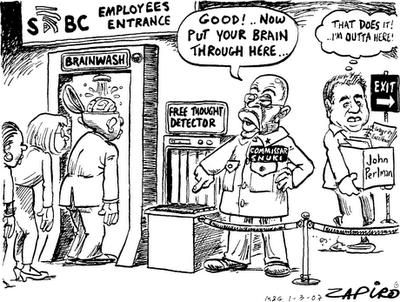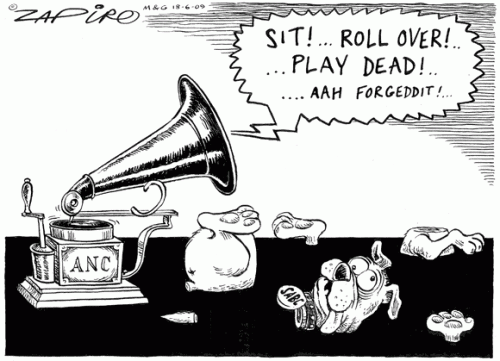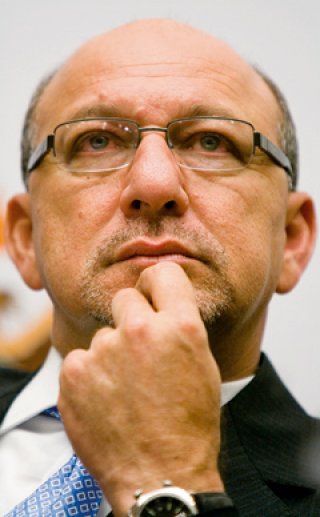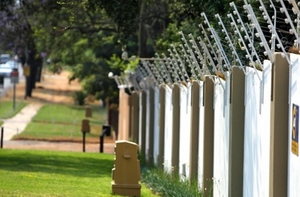At a recent rugby match between South Africa and France, Ras Dumisani, a reggae singer, butchered the South African national anthem. He sung off-key and struggled to remember the words. It has since been played over and over in South Africa and has even peaked international interest. Members of Parliament are calling it treason. The players were shocked and horrified by the performance… along with the rest of South Africa. As The Guardian in England put it, “It was not just bad. It was not-knowing-where-to-look bad. And the man responsible is rapidly becoming public enemy number one in South Africa.”
Since the infamous rendition, there have been reports that many South Africans do not know the national anthem, which I find fascinating. Before the end of the apartheid in 1994, there was an official national anthem in Afrikaans, “Die Stem,” or “The Call of South Africa.” There was also an unofficial anthem, “Nkosi Sikelel’ iAfrika,” or “Lord, Bless Africa,” sung in isiXhosa. It is a hymn which became an anthem against black oppression.
The current official national anthem is an amalgam of the two songs and is sung in five languages. South Africa has eleven official languages, but some are very close to each other and can be widely understood. The five used in the anthem are the most common languages spoken in South Africa, and everyone can understand at least one of these languages.
I first understood this to mean that the national anthem was translated into five different languages, and a person could choose his own language. However, the song uses all five languages in its four stanzas, which makes me understand why many South Africans don’t know the song. They don’t speak all the languages, and after all, the song itself is only 15 years old. In practicality, I imagine it is tough to learn. What it represents, however, is beautiful.
The national anthem is as follows. The first stanza is in isiXhosa and isiZulu. The second is in Sesotho and the third in Afrikaans.
Nkosi sikelel’ iAfrika (Lord, Bless Africa)
Maluphakanyisw’ uphondo lwayo, (May her spirit rise high up)
Yizwa imithandazo yethu, (Hear thou our prayers)
Nkosi sikelela, thina lusapho lwayo. (Lord bless us.)
Morena boloka setjhaba sa heso, (Lord, bless Africa)
O fedise dintwa la matshwenyeho, (Banish wars and strife)
O se boloke, O se boloke setjhaba sa heso, (Lord, bless our nation)
Setjhaba sa South Afrika – South Afrika. (Of South Africa.)
Uit die blou van onse hemel, (Ringing out from our blue heavens)
Uit die diepte van ons see, (From our deep seas breaking round)
Oor ons ewige gebergtes, (Over everlasting mountains)
Waar die kranse antwoord gee, (Where the echoing crags resound…)
Sounds the call to come together,
And united we shall stand,
Let us live and strive for freedom,
In South Africa our land.
So is butchering the national anthem treasonous? Maybe because I have sung the American national anthem several times in front of large crowds or because I only speak one language, I’m willing to give the guy a break. Or because I know how much monitors and working equipment really do affect a performance. As Americans, I think we tend to laugh off such performances. I have heard many terrible interpretations of the American national anthem, but I don’t find it disrespectful to the country. I imagine he is mortified. I am, however, in the minority opinion. And it’s quite possible I am the only one.
The national anthem should, however, be something citizens take pride in singing and something that unifies the nation. Not to mention something citizens know, no matter how difficult. This is especially true when it is played before international audiences (like at this rugby match). When I watch the Olympics and an American wins a gold medal, I love seeing that person on top of the stand, our flag being raised above the rest and our national anthem being played in the background… It’s almost magical. In that moment, I am very proud to be an American, and I think our national anthem is the most beautiful in the world.
South Africans must feel the same way. In a country that recently ended segregation, the anthem with its two melodies and five languages is a symbol of unity. It has to bring pride to all South Africans who for so long sang their hymn as a cry for freedom, to see it incorporated into the official anthem. And for those who were privileged but fought for the rights and dignity of all people, to celebrate a new history.
The history of the South African national anthem is actually quite interesting.
As is Ras Dumisani’s performance…



